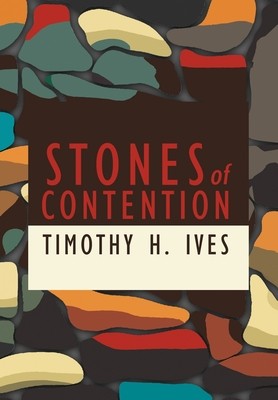
- We will send in 10–14 business days.
- Author: Timothy Ives
- Publisher: World Encounter Institute/New English Review Press
- Year: 2021
- Pages: 266
- ISBN-10: 194300353X
- ISBN-13: 9781943003532
- Format: 15.2 x 22.9 x 1.9 cm, kieti viršeliai
- Language: English
- SAVE -10% with code: EXTRA
Reviews
Description
It is becoming impossible to deny that the pervasion of leftist ideology in New England is precipitating a retrogression of race relations among descendants of colonial-era populations. This is exemplified by the Ceremonial Stone Landscape Movement, the central claim of which is that many, if not most, of the stone heaps, walls, and other structures scattered about the region's secondary forests are not vestiges of abandoned historic farmsteads but ancient Indian ceremonial constructions that require protection from the ongoing ravages of settler colonial development. Applauded for its voguishly defiant pose against Western histories and institutions, this claim has been uncritically embraced by tribal authorities, established scholars, residential property owners, and even federal and municipal agencies. For who, in this golden-age of identity politics, dares question indigenous sacred property claims? But there is an elephant in the room. Sourcing political power from old racial anxieties, this activist movement galvanizes a victimhood identity among Indians, weaponizes white settler colonial guilt, and tramples the boundary between history and propaganda before an understandably confused and racially paranoid public. As this movement's top persona non grata, Dr. Ives exposes its ironic origins in the settler colonial imagination, defends the fascinating histories that it undermines, and considers its costs to society at large. This book may interest those studying archaeology, cultural resource management, decolonialism, race relations in post-Civil Rights era America, leftist bias in academia, and New England history.
EXTRA 10 % discount with code: EXTRA
The promotion ends in 23d.23:09:29
The discount code is valid when purchasing from 10 €. Discounts do not stack.
- Author: Timothy Ives
- Publisher: World Encounter Institute/New English Review Press
- Year: 2021
- Pages: 266
- ISBN-10: 194300353X
- ISBN-13: 9781943003532
- Format: 15.2 x 22.9 x 1.9 cm, kieti viršeliai
- Language: English English
It is becoming impossible to deny that the pervasion of leftist ideology in New England is precipitating a retrogression of race relations among descendants of colonial-era populations. This is exemplified by the Ceremonial Stone Landscape Movement, the central claim of which is that many, if not most, of the stone heaps, walls, and other structures scattered about the region's secondary forests are not vestiges of abandoned historic farmsteads but ancient Indian ceremonial constructions that require protection from the ongoing ravages of settler colonial development. Applauded for its voguishly defiant pose against Western histories and institutions, this claim has been uncritically embraced by tribal authorities, established scholars, residential property owners, and even federal and municipal agencies. For who, in this golden-age of identity politics, dares question indigenous sacred property claims? But there is an elephant in the room. Sourcing political power from old racial anxieties, this activist movement galvanizes a victimhood identity among Indians, weaponizes white settler colonial guilt, and tramples the boundary between history and propaganda before an understandably confused and racially paranoid public. As this movement's top persona non grata, Dr. Ives exposes its ironic origins in the settler colonial imagination, defends the fascinating histories that it undermines, and considers its costs to society at large. This book may interest those studying archaeology, cultural resource management, decolonialism, race relations in post-Civil Rights era America, leftist bias in academia, and New England history.


Reviews